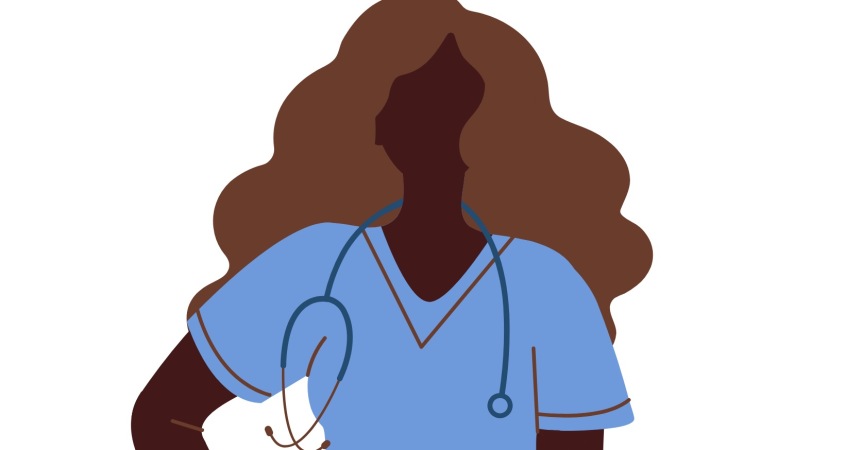By: Elienishka Ramos Torres
AMHERST – Many new student groups are forming at the University of Massachusetts, and among them is Black Women in Medicine. The group, which began its formation in early Spring 2020, has a mission in fostering community among pre-medical Black female students at UMass.
Black Women in Medicine President Attiya Nurse, a junior majoring in biology and nutrition, said that the group started as a cool idea between friends, “I talked to [the other e-board members] after one class we all had together and we agreed that this would be something great to bring to the UMass community.”
Nurse’s original inspiration came from her time at another school. “I had previously attended University of South Florida where this organization had started. When I transferred to UMass, I really thought it was something that was missing here.”
According to statistics gathered from University Analytics and Institutional Research conducted on the UMass population, only 6 six percent of the fall 2020 undergraduate student population were Black/African American. This means that the number of pre-medical Black students at UMass is also small. Navigating life as a pre-medical student at UMass, Nurse “couldn’t connect” with peers and questioned her sense of belonging in the spaces that she was in.
Junior microbiology and anthropology double major Norsha Hydol, vice president of Black Women in Medicine, said that’s an issue the group plans on tackling: “We want to create a welcoming community for everyone on campus that would like to go into the medical field outside of just classes and really create a family.”
While creating a community at UMass is one goal, a main part of the group’s mission is addressing health discrepancies of Black people in the United States, which is caused by the lack of proper health services. While the COVID-19 pandemic has disproportionately affected low income racial minorities the most, the United States has a long history of racist and negligent health practices against Black people.
Nurse believes that a rise in Black medical professionals would lead to less health issues that “disproportionately affect Black people.”
One of the most striking examples of this is white medical professionals underestimating the pain that Black patients are in, which comes from a centuries old racist belief that different races have different pain tolerances. Both publicized experiences and studies have shown that doctors underestimate the pain their Black patients are in, in contrast to their non-Black patients. The findings in one specific study showed that physicians underestimated the pain of 47 percent of their Black patients in comparison to only underestimating the pain of 33 percent of non-Black patients.
Structural racism has also unequally affected Black people in the U.S. in other areas of healthcare, as well.
Research gathered by the Center for Disease Control and Prevention (CDC) showed that Black women were more likely to die at birth than Hispanic and white women. And, according to research from the National Center for Health Statistics, although heart disease has been a downward trend across different ethnic groups, Black people in 2016 were most likely to experience hypertension, and Black and non-Black-Hispanics were more likely to be diagnosed with diabetes.
The leaders of the organization’s long term goals also align with the group’s mission.
Nurse hopes to become a clinical researcher studying obesity and diabetes, and wants to specialize in internal medicine while in graduate school. She wants to “bring awareness to the need to change the U.S. food environment in urban areas and help advance nutrition knowledge and communications in underserved communities.” Hydol aims on becoming a family physician after attending medical school.
Black Women in Medicine plans on addressing the pandemic, lack of minority health professionals and health issues affecting the Black community, but Nurse says the group’s “main focus right now is finalizing the RSO process” that will help them establish themselves more within the campus community.
For additional information, updates, and ways to support:
Instagram: bwm_amherst
Email: bwmumass@gmail.com

